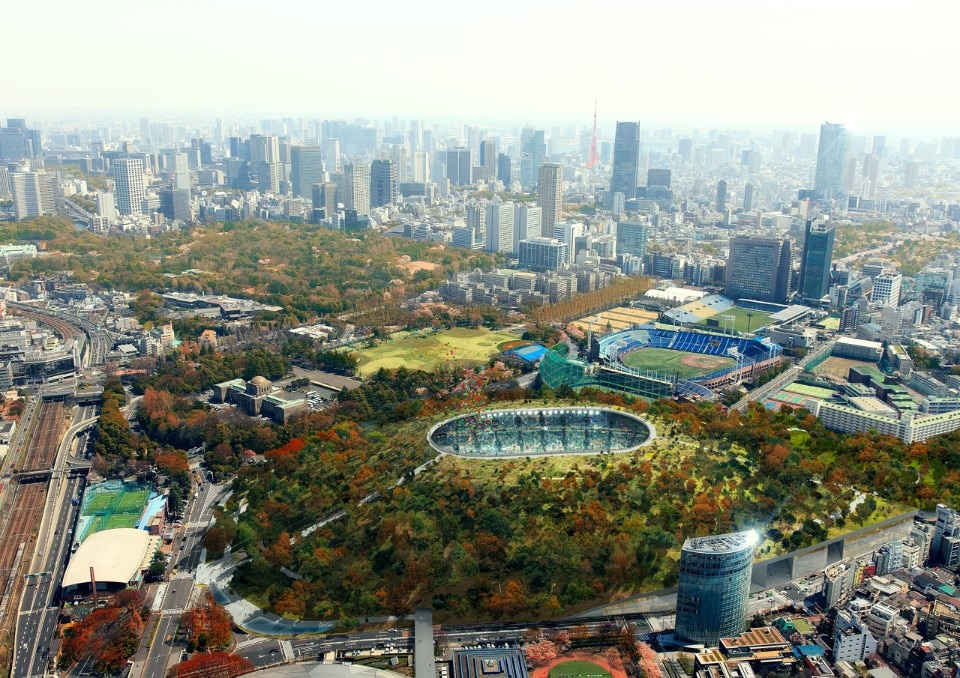In his 1974 book The limits of the city, the radical sociologist and ecologist Murray Bookchin spoke of the need to substitute metropolises with communities which incarnate the values of the city and which count on “complete eco-technologies which take the most advanced elements of contemporary technology – including energy sources such as solar and wind – to a local scale” This is the only way, he explained, for urbanisation to once more provide suitable terrain for the cultivation of a more glorious human spirit, made up of culture, community and communion. Bookchin was right up to a point: metropolises have not disappeared, on the contrary they are growing in both number and size, but ecology and technology applied to cities - now defined as “sustainability” and “smartness” – are values shared by everyone.
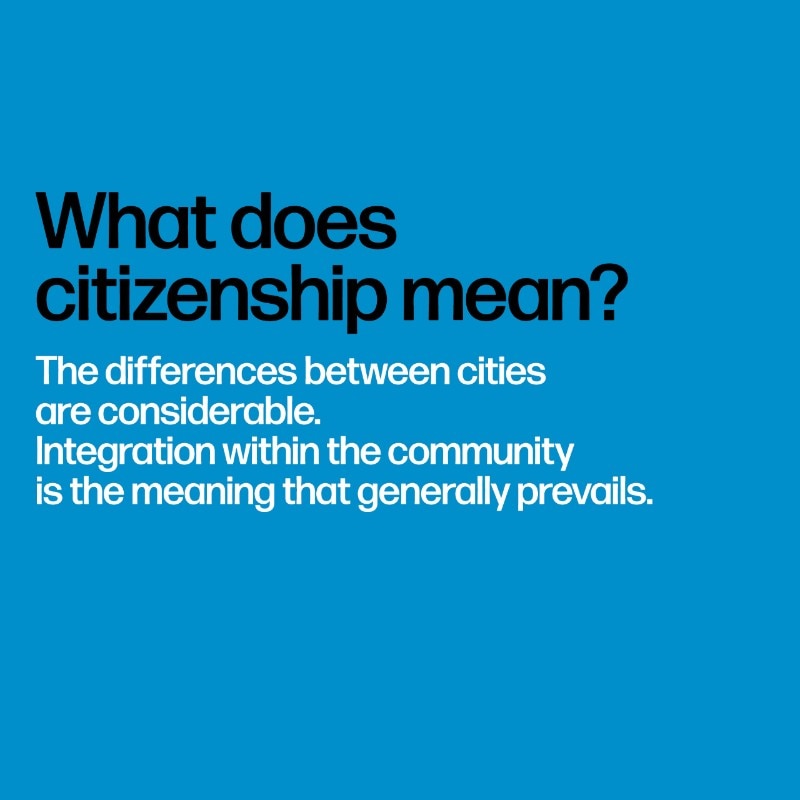
All of this, and much more, is clearly demonstrated by The future of cities, the research that Domus has commissioned from Nielsen on the occasion of domusforum and which you will find excerpts of on the pages that follow, with the opinions of the experts interviewed*, the vox populi surveyed with a wide-ranging questionnaire put to the inhabitants of five cities (Chicago, London, Milan, Shanghai and São Paulo), as well as an analysis of the posts on social networks originating from the five same cities. The significant and by no means obvious fact is that citizens nowadays are, in general, satisfied with their cities and have a positive view of the cities of tomorrow. Future cities are seen as places where quality of life is better as they are green and “walkable”, and are capable of responding to the needs of citizens through the smartness of buildings and institutions. These are, in the end, no more than the hopes expressed by the majority of social scientists. For once, in this period of economic and ethical crisis characterised by “tailor-made knowledge”, the academic world and the community seem to share the same ideas. The challenge is to set out a common path, beginning right now, with domusforum.
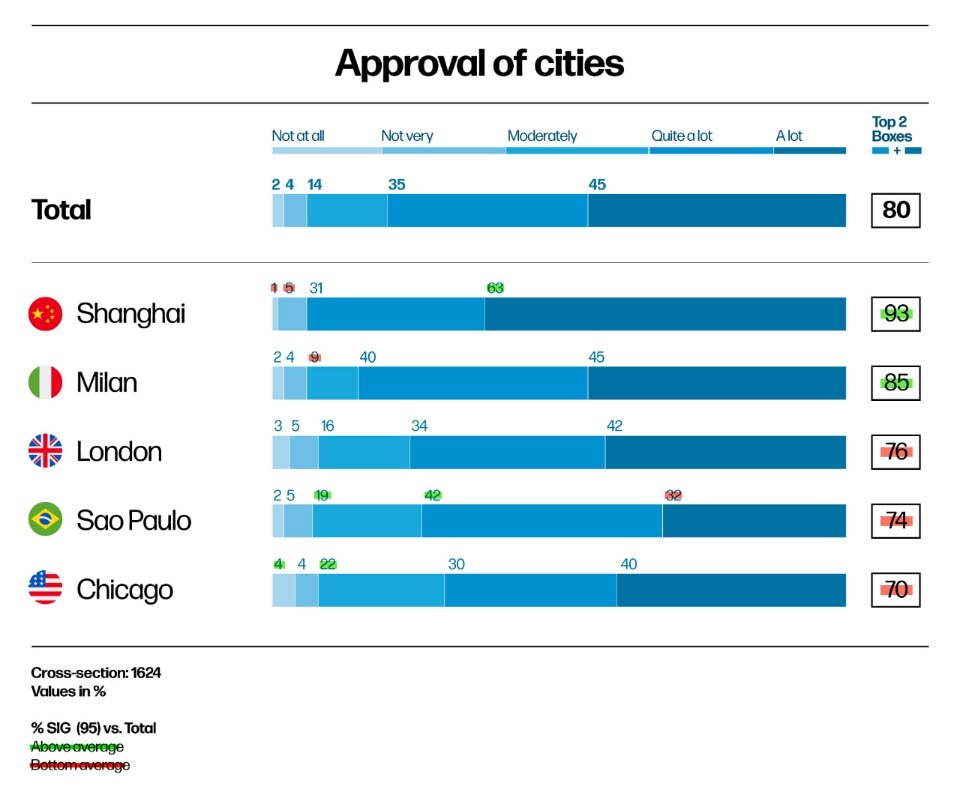
City life is a positive experience thanks to the quality of one’s district, irrespective of pollution and bureaucracy.
In general, city life is seen as a positive experience. This is the fundamental point which emerges from The Future of cities. From an analysis of the populations of Chicago, London, Milan, São Paulo and Shanghai, it emerges that 80% of those interviewed appreciate the city they are living in, with a peak of 93%in the case of the Chinese metropolis, and Chicago in last place with a still-comforting figure of 70%. But that is not all. Except in the case of São Paulo, the number of citizens who like living in their cities “a lot” outnumber those who are “sufficiently happy”. In Shanghai, the level of enthusiasm is at 63%, while in Milan the level of 45% corresponds to the average among the five cities. What makes a citizen happy with their urban situation? First of all, again according to the data collected by Nielsen, one’s appreciation for the area in which they live, followed by urban and architectural innovation, the validity of the education system, and ease in mobility. On the contrary, the critical themes are environmental quality and safety, two factors which are considered very important (although the emphasis on safety varies widely from city to city, and is fundamental particularly in Chicago and São Paulo) and which are generally felt to be of an unsatisfactory level. The efficiency of local administration and the cost of living are also seen as negative factors, but these are two areas which do not have a significant impact on overall satisfaction. Another factor of little impact is the quality of infrastructure, cultural offering and integration between different cultures, all aspects which in general are well-managed by local administration but which seem to only interest citizens up to a point.
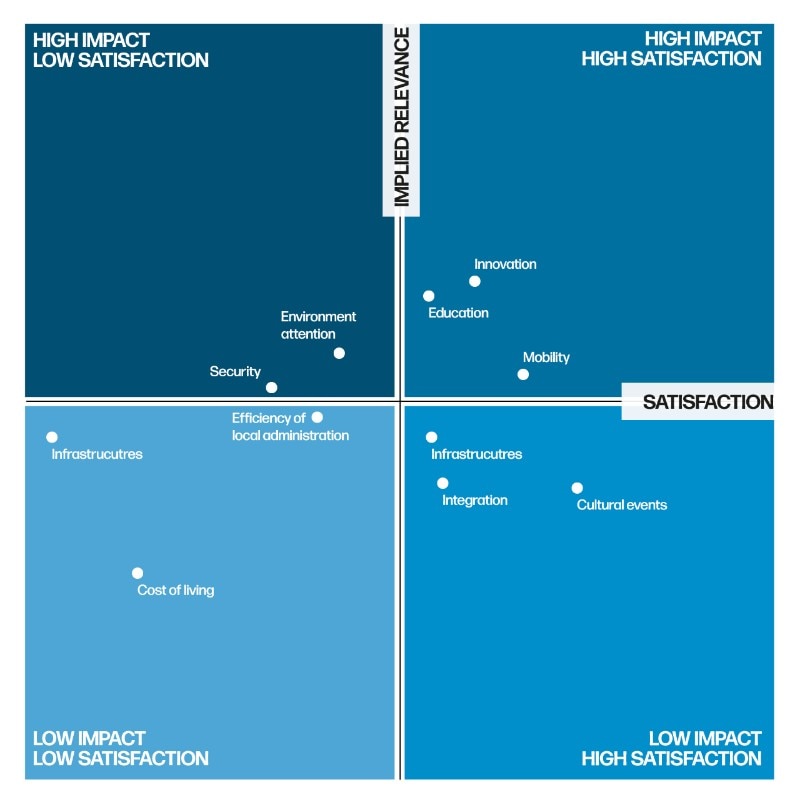
Safety, environment and mobility. The factors which determine satisfaction for the present and the choices for the future.
The factors which determine the appreciation of citizens for their city are not necessarily the same as those which drive the choices (or shape the desires) of those who decide to move to another location. The first fact which emerges on examining the results of the research The future of cities is the importance that is attributed to the cost of living in the possible new destination: for 34% of those interviewed, it is the prime factor to be taken into consideration in choosing a place to move to, while it is of no importance for the same group in forming an overall opinion of their own current city of residence. Among the so-called “drivers for relocation”, economic sustainability shares first place with safety, a theme which is seen differently among the various cities surveyed but which is always a decisive factor in opinions on present situations. What is surprising is the public administration factor: it is generally considered as relatively inefficient, but this does not appear to be a decisive element in the evaluation of current conditions or in future choices. There is coherence in the data regarding ease of inter-and extra-urban mobility, and above all attention to the quality of the environment, among the most important factors in determining the level of satisfaction for the current city of residence as well as a determining factor for future choices. Lastly, a reflection on cultural offer: the citizens interviewed generally claim to be satisfied with what their city offers, but this has relative impact on the overall opinion, and only marginal impact on the choice of a new destination.
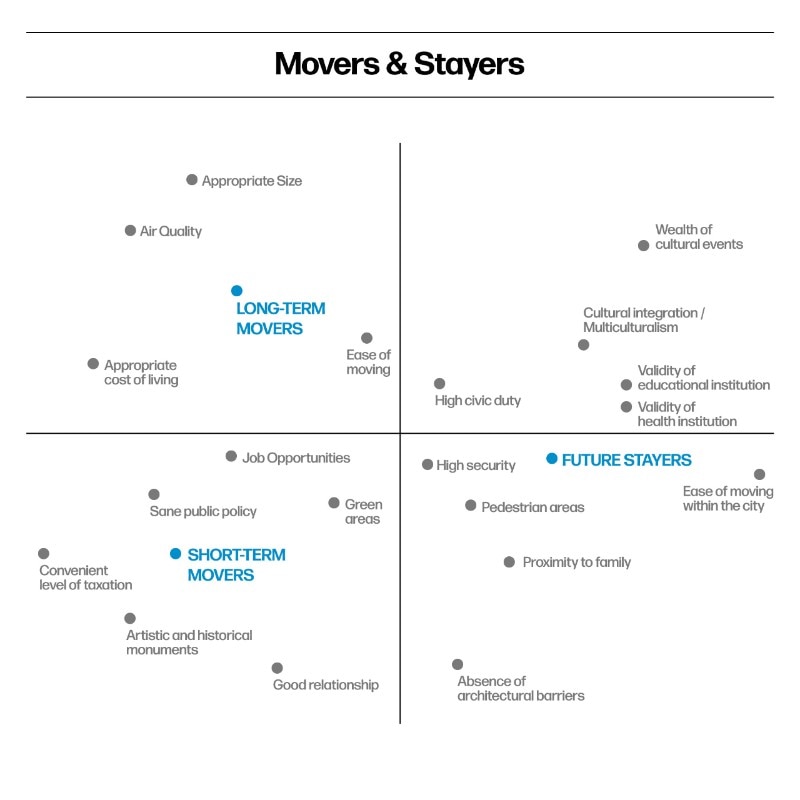
Urban parks, bicycles and electric cars. The future is positive if tinged with green.
What will the cities of the future be like? The survey carried out by Nielsen tells us that citizens are optimistic about future urbanisation, and tend to imagine cities which offer a higher standard of living, particularly thanks to their green aspects. 40% of those interviewed imagine the cities of tomorrow to be more ecological, and 37% expect a significant increase in green areas and urban parks. 35% imagine a future with fewer cars or with a prevalence of electric vehicles, and 15% even imagine the majority of people moving by bicycle or on foot. According to 31% of those interviewed, cities will see an increase in population, while only 15% think that they will be characterised by a more even distribution of income. Only slightly more - 18% - indicate building smartness as one of the salient characteristics of the cities of tomorrow, while almost one in three, 31%, believe that urban populations are destined to grow. Lastly, a separate chapter is reserved for expert opinions: the trend which clearly emerges is that of “megapolisisation”, a dynamic which will lead to the creation of large urban hubs surrounded by a corollary of small cities characterised by integrated communities and highly experimental and accessible average-sized cities.
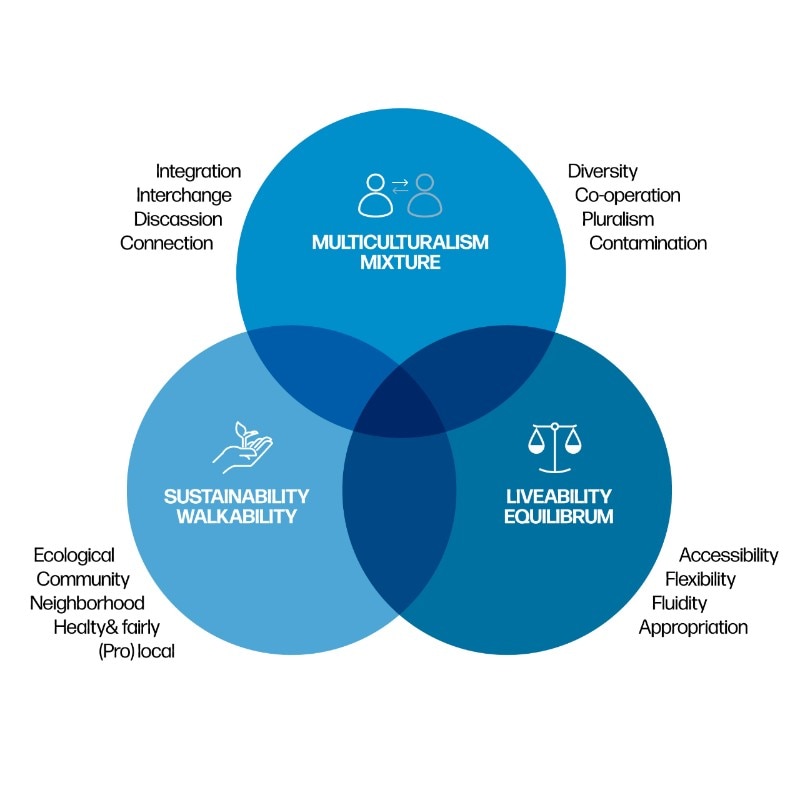
*During the qualitative stage of research, Nielsen interviewed: Anna Lazzarini, philosopher, Università degli Studi di Bergamo; Rahul Mehrotra, urbanist, Harvard University; Giuseppe Russo, director of the Centro Einaudi, Turin; Anna Scheuermann, architect, curator German Pavilion, Venice Biennale 2016; Jeff Speck, urbanist; Serena Vicari, sociologist, Università Bicocca, Milan.
- Conferenza:
- domusforum 2018. The Future of Cities
- Data:
- 11 ottobre 2018
- Luogo:
- Teatro Franco Parenti
- Indirizzo:
- via Pier Lombardo 14, Milano
- Registrazioni:
- chiuse
Immagine di copertina: Dan Dorell, Lina Ghotmeh e Tsuyoshi Tane, progetto per lo stadio di Tokyo. © DGT




